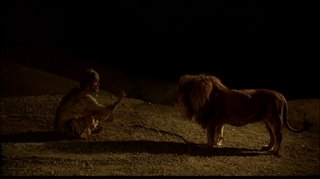SFIFF '06~!: Regular Lovers [festival note]
Starring Louis Garrel, Clotilde Hesme, Julien Lucas
Written by Philippe Garrel, Marc Cholodenko, Arlette Langmann
Directed by Philippe Garrel
It probably should add up to more, given that in three hours there are many fine moments, with nothing particularly embarassing. There isn't much of a sense of loss, even retrospectively, as the revolutionary flame of Paris '68 is dampened when the demonstrations end, and as it gradually approaches extinction over the rest of the film. Don't get me wrong, this is an excellent work, especially technically. There's generally minimal cutting; the camera regularly glides from one fixed close-up to another, adding to the languid mood, befitting the often opium-addled characters. There are moments of energy: early on there's a long, almost dialogue-free recreation of the street battles, quite masterful if you like that sort of thing; I preferred to see the kids dance to the Kinks' "This Time Tomorrow". And if in the end youth's esprit is less well-represented than its self-absorption, there's enough critical distance to make that an achievement.
Louis Garrel was the best performer in The Dreamers by default; seen here through his dad's less rose-tinted lens, as the poet-hero François, despite his considerable strengths, he seems almost too pretty, too old Romantic. In any case Clotilde Hesme, in giving him someone to be Romantic about, overshadows him. She has a wide mouth and wide (by French actress standards) hips, and dominates the screen such that she persists after the camera has moved away. A sculptor, she's earthier than François (she has a real job!), and there are indications that she might also be wiser. In one scene in which she, head still, rolls her eyes all over him, she seems to be assessing him as if he's a work of art; later she calls him "beautiful on the inside and on the outside". And there are two moments when she speaks straight to the camera: once to wax on the hearts of men, once to simply say "Bernardo Bertolucci". Dreaming can only take you so far.





